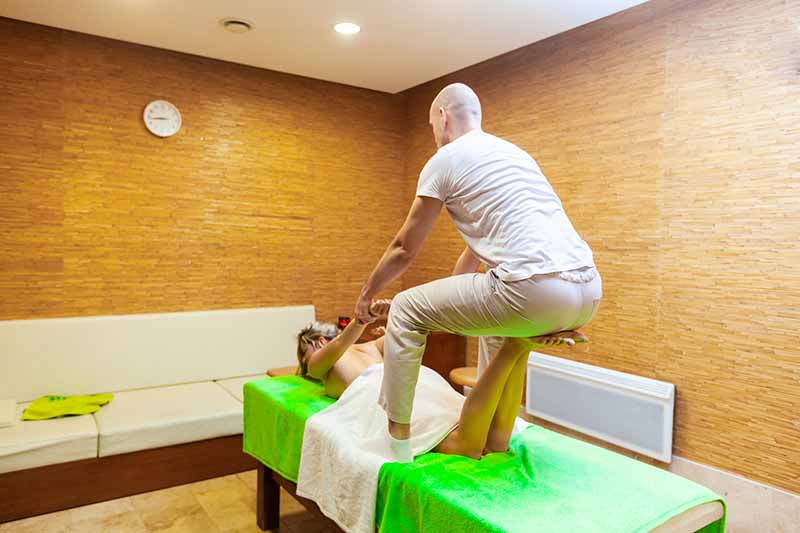
The future of spa staffing will bring changes to the way leaders pay and treat employees, as well as to training procedures and what we expect from our teams.
The future of spa and wellness will bring changes to everything, including the way businesses attract, hire, and retain employees.
The staffing crisis has been with the industry for years and has been exacerbated by the COVID-10 pandemic. Solving this issue will take time and require creative and innovative solutions while market changes and technological developments will also lead to requiring new ways of looking at things.
Here are five predictions about the future of spa staffing.
Spas will have to find creative solutions to new problems
As we just stated, it’s going to take some creativity to be successful. Some of the ideas we’ve seen so far include partnering with experts to deliver adjunct services and experiences and create additional revenue streams without the need for staff. The Fairmont Century Plaza, for example, has partnered with Dr. Rita Rakus, an “award-winning doctor who revolutionized cosmetic and wellness treatments in the UK,” to open a clinic in their spa, and with Dr. Oz Garcia to offer remote nutrition, wellness, and biohacking.
Another solution is on-demand staffing. Spas can partner with agencies that provide temporary and on-demand solutions.
More ideas that have yet to be conceived of are sure to follow.
Spa staff will have rigorous training protocols and be highly specialized
You won’t need to staff to take care of minutiae. Technology will be doing the day-to-day tasks that currently require several hours of work during the week. Spas won’t need to pay staff to do things that can be automated, like booking appointments, checking guests in and out, handing out intake forms, manually entering data, or KPI and business reporting.
Their roles will be more specialized. Spas will expand their service offerings beyond basic massage and body treatments – and some will become centers of longevity and life extension. Spas will offer a wider range of care treatments that will straddle a line between medicine and wellness, from Botox and IV therapy to — way farther down the road — cybernetic enhancements and genetic engineering.
Specialized staff will be trained in these protocols and schools will emerge to offer education and certifications to keep up.
Staff will be influencers and celebrities
Sooner rather than later, spa staff will become part of a company’s marketing strategy. Team members who are real experts in their fields and in healing methodologies will provide leverage for businesses to grow their brands and play influencer roles.
We know in this industry that it’s the people who work for you that can make or break a spa’s success. So, it only stands to reason that those same people can be positioned as a draw and help elevate your brand presence.
Customers will make decisions about visiting properties based on who they want to work with. Companies will play a role in working with these influencers to create their personal brand profiles and they will also compete to hire the best of the best.
People will be paid what they are worth
The industry will continue to be plagued by a staffing crisis until leaders realize that they can’t short change employees and expect top notch performance anymore. Let’s be truly honest for a moment: spa and hospitality companies are forever looking for ways to retain employees without having to pay them well. This is somewhat understandable, since spa can be a low-profit industry, but it can’t go on. It’s a job candidate’s market and will continue to be for the foreseeable future.
This is where leadership has to get creative with diversifying revenue streams and performance-based pay. If you can’t afford to pay people fairly, you won’t be able to afford to run your business.
Employers won’t be able to burn people out anymore
Spa is also notorious for burning its people out, and conscientious leaders regularly point to burnout as a leading cause of employee attrition. Sonal Uberoi, wellness expert and author of The Wellness Asset: How wellness can transform and future-proof your hotel, told us in an interview a few years ago, “Spa staff suddenly find that their days off have been pushed back, so they have to work seven or eight days in a row — or more! — and management have to be at the hotel from morning to when the VIP client leaves his or her treatment at the end of the day, which can mean a 10-12 hour shift. These small ‘one offs’ slowly become the norm, which over time eventually lead to burnout.”
She added, “The irony of it all is that we promote wellbeing, we preach work-life balance, but we don’t practice what we preach in our own businesses!”
Savvy leaders already know that burning employees out will, in the long run, cost businesses more than they can afford. And everyone else will have to catch up. In a candidate’s market, this won’t be tolerated.
Research has found that people are leaving the hospitality industry and do not want to return. A survey of more than 30,000 job seekers that we have cited previously found that 60% would not consider working in a restaurant, bar, hotel or other hospitality job. Of those, 70% said nothing would convince them to work in hospitality. Thirty-eight percent of former hospitality workers said they are not even considering a hospitality job, and only 26% said higher pay would incentivize them to change their minds.
This can be fixed but it will take work. And it has to start now if you want to be one of the businesses that succeeds.
Spa Executive is published by Book4Time, the leader in guest management, revenue and mobile solutions for the most exclusive spas, hotels, and resorts around the globe. Learn more at book4time.com



